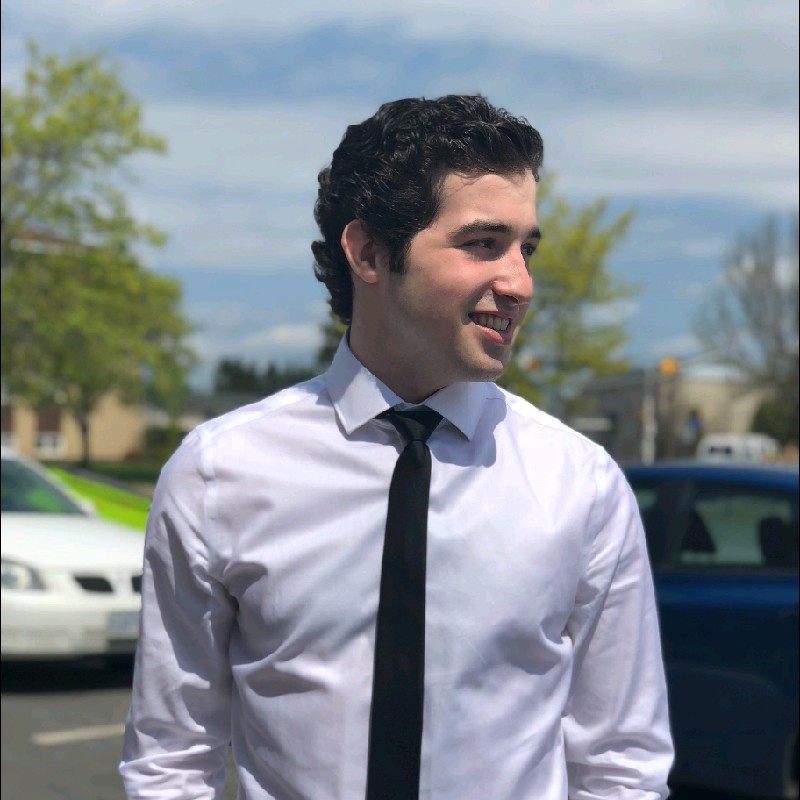SGS Celebrates Graduate Student Winners of Federal Tri-Council Awards – Evan Campbell
Author: Andrea
Posted on Jun 30, 2021
Category: Money Matters , Student Stories

Profile of Evan Campbell
Award Received: Alexander Graham Bell Canada Graduate Scholarship-Doctoral (NSERC CGS D3)
Awarded for the project: End-to-End Reinforcement Learning for Myoelectric Control
Faculty: Engineering
Department: Electrical Engineering
Project supervised by: Dr. Erik Scheme
Upper-limb prostheses only restore few fixed gestures to amputees, but natural limbs do much more.
The Institute of Biomedical Engineering at UNB has a long history of pioneering upper-limb prosthetic research dating back to the thalidomide crisis in the 1960s. Today, sensors and microcomputers use the electrical potentials given off by muscles as they contract to decode motion intent; the motors of the robotic limb then perform the predicted action. This process has evolved from using buttons to manually select a degree of freedom, to using machine learning to automatically detect the user's intent. Despite prostheses reportedly working well in academic experiments, amputees are rarely satisfied with prosthetic device performance in real world scenarios and prosthetic device adoption rates remain low. Prostheses can be uncomfortable, and they are only capable of performing a small number of fixed actions that lack the flexibility and dexterity to adapt to different situations. This is in stark contrast to how motions are performed using the neuromuscular system, where virtually any kind of motion can be planned in the brain and the corresponding signals are sent to the muscles to perform that exact motion. Our proposed research seeks to leverage reinforcement learning, and alternative framework at the forefront of artificial intelligence, to map directly from the electrical potentials to the motors of the robotic hand. Our hope is that, through this work, prosthetic devices will become more intuitive and dexterous, enhancing an amputee's quality of life.
